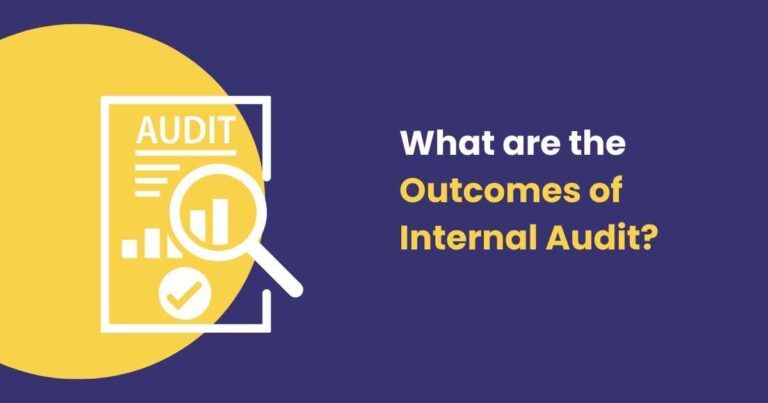An internal audit is an independent, objective assurance activity designed to add value to an organization by improving its operations. It helps companies identify issues, manage risks, and implement recommendations to support good governance and strategic decision making. This article outlines the key outcomes and organizational benefits provided by robust internal audit functions.
What Exactly is an Internal Audit?
An internal audit is an internal assessment conducted by a company’s own auditors (employees) to evaluate the following:
- Financial reporting – Are financial statements and records accurate and complete? Are expenses properly approved?
- Compliance – Does the company comply with relevant laws and regulations?
- Operational processes – Are procedures efficient and effective? Do they have adequate internal controls?
- Risk management – Are major risks to the company identified and properly handled?
Internal audits use risk-based methodologies to uncover weaknesses or gaps that could expose the company. Identifying these issues early allows management to implement corrective actions and process improvements.
The 6 Critical Outcomes of Effective Internal Auditing
Well-structured internal audit activities lead to major benefits:
1. Identifying Gaps in Internal Controls and Processes
- Auditors thoroughly vett procedures and processes
- Reveals where key internal controls are missing or inadequate
- Fixing these gaps significantly improves safeguards against errors, fraud, and losses
2. Ensuring Accurate, Reliable Financial Reporting
- Verifying that accounting and financial data is complete and accurate
- Provides executives reliable numbers to make strategic decisions
- Reduces risk of misstatements and financial surprises
3. Supporting Legal and Regulatory Compliance
- Assesses if policies and activities align with regulations
- Prevents fines or sanctions from non-compliance with laws
- Upholds company’s reputation and customer trust
4. Driving Process Efficiency and Cost Savings
- Digs into workflows to uncover inefficient practices
- Optimizes operations by enhancing resource use
- Saves money through less manual effort and wastage
5. Enabling Proactive Risk Management
- Examines how major risks to strategic objectives are handled
- Gives assurance risks are mitigated using sound methods
- Compels improving inadequate risk plans exposed during review
6. Deterring and Detecting Fraud
- Tests integrity of processes, controls, and monitoring
- Able to uncover cases of abuse – embezzlement, financial fraud
Who Benefits from Strong Internal Audit Functions?
Well-structured audit functions generate valuable insights that benefit multiple stakeholders:
- Executives and Management
- Gain independent assurance that governance and oversight are working properly
- Identifying issues early allows quicker mitigation before small problems spiral
- Implementing recommendations enhances operational control and performance
- Board and Audit Committees
- Supports oversight duties by highlighting matters needing governance attention
- Insights to enhance risk management and internal control systems
- Investors and Shareholders
- Boosts investor confidence by signaling commitment to accountability and transparency
- Lowers likelihood of financial surprises or scandals
Overall, internal audit is a vital strategic function that enables the business to operate in a controlled, ethical manner.
How Firms Can Maximize the Value Derived from Internal Audits
- Organization should provide sufficient and skilled audit resources
- Have well-defined risk-based audit methodologies
- Ensure responsive action on audit findings by management
- Get business units to implement audit tips and process changes
- Foster an ethical culture emphasizing accountability and transparency
- Encourage open communication between management and auditors
Following these best practices allows companies to amplify the benefits gained from internal audits.
Conclusion
Overall, effective internal auditing delivers immense value by identifying control gaps, ensuring compliance, driving process upgrades, and enabling proactive governance. Fixing the issues revealed through internal audits reduces organizational risk exposure and supports strategic health. Companies that invest in and leverage internal auditing gain a significant competitive advantage.
FAQs
For most companies, an annual risk-based audit plan covering major risk areas is appropriate. Higher risk zones warrant more frequent audits.
Internal auditors are employed by the company to audit its governance, risk management, and processes. External auditors are independent firms that audit annual financial statements.
Audit work has sampling limitations, so some control gaps may be missed. Additionally, business leaders may not always implement audit recommendations adequately or timely.





